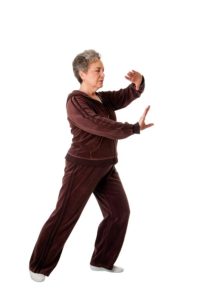Mobility is defined as the ability to move or be moved freely and easily. As mobility declines in the elderly, lack of independence results. Loss of mobility results in not only physical consequences, but social and psychological ramifications as well. As it progresses, there is a tendency to stay at home and a vicious cycle begins. Lack of movement leads to loss of muscle tone leads to further loss of mobility. Decreasing physical strength and flexibility eventually leads to an increased susceptibility to falls.

JAMA—Mobility Limitation in the Older Patient
A clinical review posted in JAMA reported that “the most common risk factors for mobility impairment are older age, low physical activity, obesity, strength or balance impairment, and chronic diseases such as diabetes or arthritis.” In addition, the study suggested that resistance and balance exercises help to limit physical weakness and improve mobility. Addressing environmental barriers and mobility devices can lead to improved quality of life and increased mobility.
Strength and Balance
According to a report in the Harvard Health Publications, tai chi, an ancient martial arts, is shown to reduce falls in seniors by up to 45 percent. It promotes balance as well as leg strength, flexibility and range of motion. It’s easy, flowing movement is a great exercise for all ages.
Environmental Barriers
Make sure your parent is living in a home environment that will make getting around easy and safe. Limit tripping and slipping hazards such as throw rugs and furniture that is creating an obstacle on a common pathway. Remove any wires that could impede safe travels. Make sure their home is well lit and consider installing motion sensor lights as well as night lights. Install grab bars in appropriate places such as the shower and by the toilet. Make sure the bathroom has non-skid pads in the tub and by the sink. If there are stairs in the home, make sure banisters are on both sides. Eventually, a stair lift may need to be installed or your parent’s bedroom may need to be moved to the first floor.
A Variety of Solutions
Your parent’s primary health care provider can suggest various solutions to your parent’s mobility issues. These include physical therapy, occupational therapy and the use of mobility devices such as canes, walkers or wheelchairs.
Home Care Services Provider
A senior home care services provider can assist your parent with the daily activities of living such as personal hygiene, meal preparation, transportation, light housekeeping and running errands such as grocery shopping. Consider obtaining their services to care for your parent when you can’t be there, providing support and companionship while giving you the time you need to refresh and recharge.
Resources: http://jamanetwork.com/journals/jama/article-abstract/1738875
If you or an aging loved one are considering Home Care Services in Walpole MA, or anywhere in Eastern Massachusetts, please call the caring staff at CARE Resolutions – (508) 906-5572.
- Adapting Meals for Seniors with Chewing or Swallowing Difficulties - November 20, 2024
- How Playing Games Helps Alzheimer’s Patients - November 5, 2024
- What Seniors Should Know About Prescription Medicines - October 17, 2024



